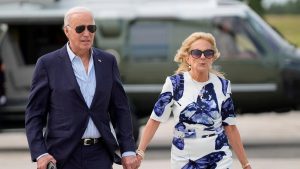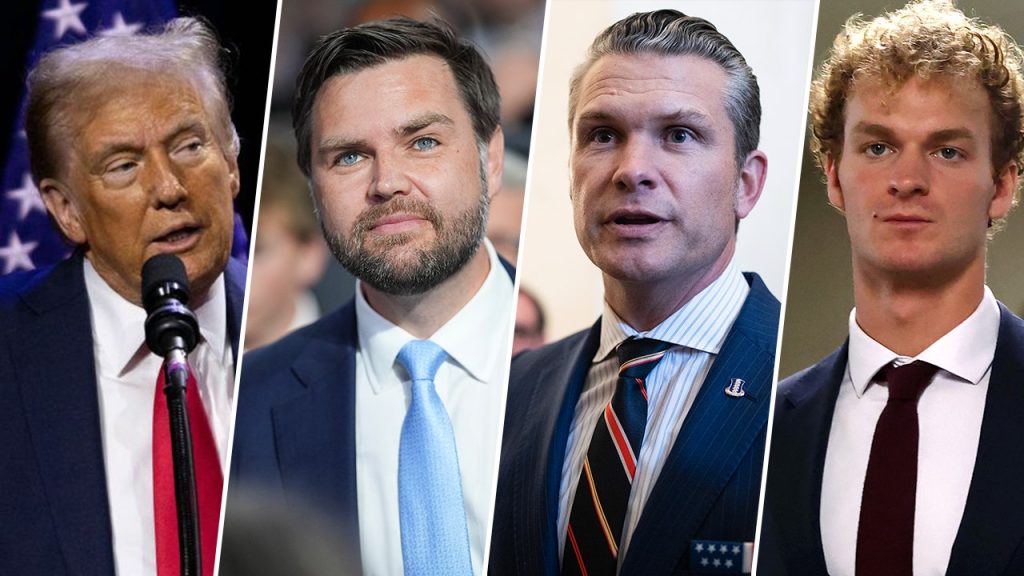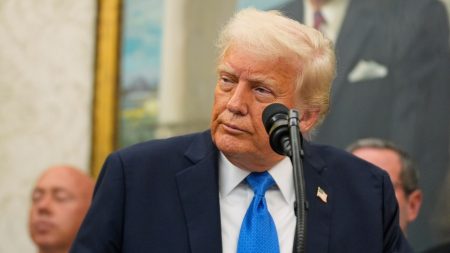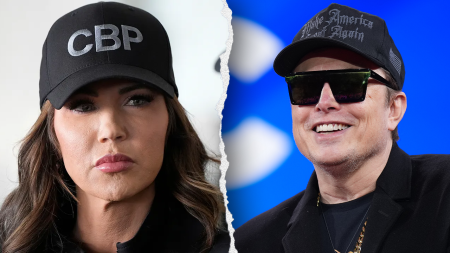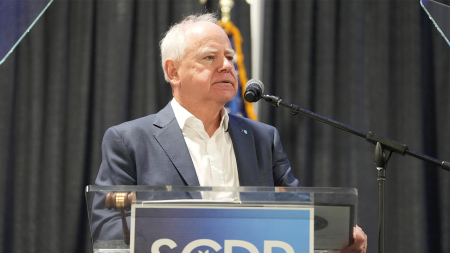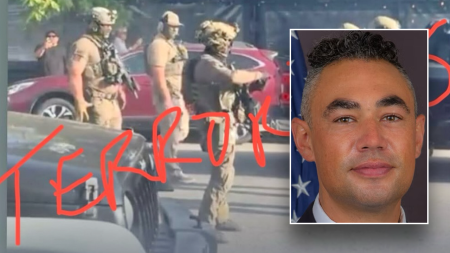The 125th annual Army-Navy football game, a revered tradition in American sports, takes on a distinctly political hue this year with the attendance of President-elect Trump and Vice President-elect JD Vance, accompanied by a retinue of guests guaranteed to spark controversy. The game, held at FedExField in Landover, Maryland, provides a backdrop for political maneuvering and public displays of support for embattled nominees. The presence of Defense Secretary nominee Pete Hegseth alongside Trump underscores the president-elect’s backing for his controversial pick, particularly as Hegseth faces scrutiny over past misconduct allegations. Simultaneously, Vance’s invitation to Daniel Penny, recently acquitted in the highly publicized Jordan Neely chokehold death case, injects the emotionally charged issues of crime, mental health, and vigilantism into the sporting spectacle. The confluence of these figures at a nationally televised event highlights the intersection of sports, politics, and social issues in contemporary America.
Trump’s choice of Hegseth as his companion at the game serves as a powerful endorsement amidst ongoing confirmation battles. The former Fox News host and Army National Guard veteran boasts a military background and strong conservative credentials, aligning with Trump’s base. However, Hegseth’s nomination has been met with resistance due to past controversies, including allegations of mistreatment of women and a financial settlement related to a 2017 incident. Trump’s public display of support at the Army-Navy game sends a clear message to wavering senators, emphasizing his commitment to Hegseth’s confirmation. The presence of Florida Governor Ron DeSantis, once rumored as a potential alternative to Hegseth, adds another layer of intrigue to the event. While DeSantis’s seating arrangements and interactions with Trump remain undisclosed, his attendance underscores the ongoing speculation about his political ambitions and relationship with the president-elect.
Vance’s decision to invite Daniel Penny to the game has ignited a firestorm of criticism and debate. Penny’s acquittal in the Jordan Neely case, while welcomed by some as a victory for self-defense, has been condemned by others as an example of racial bias and excessive force. Neely, a homeless man struggling with mental illness, posed a perceived threat on a New York City subway, leading to Penny’s intervention and subsequent chokehold death. The case has become a flashpoint in the ongoing national conversation surrounding mental health, homelessness, and criminal justice reform. Vance’s public support for Penny reinforces his tough-on-crime stance and aligns him with a segment of the electorate that views Penny as a hero. The invitation to the Army-Navy game elevates Penny’s profile and further politicizes the tragic incident.
The convergence of these controversial figures at the Army-Navy game transforms a sporting event into a political stage. The game itself, a celebration of military service and athletic competition, becomes overshadowed by the political baggage and social implications surrounding the attendees. Trump’s presence, his support for Hegseth, and Vance’s invitation to Penny dominate the narrative, highlighting the deep divisions within American society. The game, traditionally a unifying event, becomes a microcosm of the nation’s polarized political landscape. The juxtaposition of military valor and political controversy underscores the complexities of American identity and the challenges facing the incoming administration.
The attendance of other Trump allies, including former Representative Tulsi Gabbard, nominated for Director of National Intelligence, and Speaker Mike Johnson, further reinforces the political nature of the event. Gabbard, like Hegseth, faces an uphill battle for confirmation, and her presence alongside Trump signals his continued support. The gathering of Trump’s inner circle at the Army-Navy game serves as a display of political strength and a reminder of the president-elect’s influence, even before officially taking office. The event becomes a platform for Trump to showcase his chosen team and reaffirm his political agenda. The game’s symbolic significance, celebrating national defense and military service, aligns with Trump’s focus on strengthening the military and projecting American power.
The backdrop of the Army-Navy game, a historic rivalry steeped in tradition, adds another layer of complexity to the event. The game itself, a fiercely contested competition between two prestigious military academies, represents the spirit of competition and camaraderie. However, the presence of controversial political figures and the ensuing debate threaten to overshadow the athletic achievements of the players and the significance of the game. The intersection of sports and politics raises questions about the appropriate use of such events and the potential for political grandstanding. The Army-Navy game, once a symbol of national unity, becomes a contested space reflecting the deep divisions within American society. The politicization of the game underscores the challenges of finding common ground in an increasingly polarized nation.


